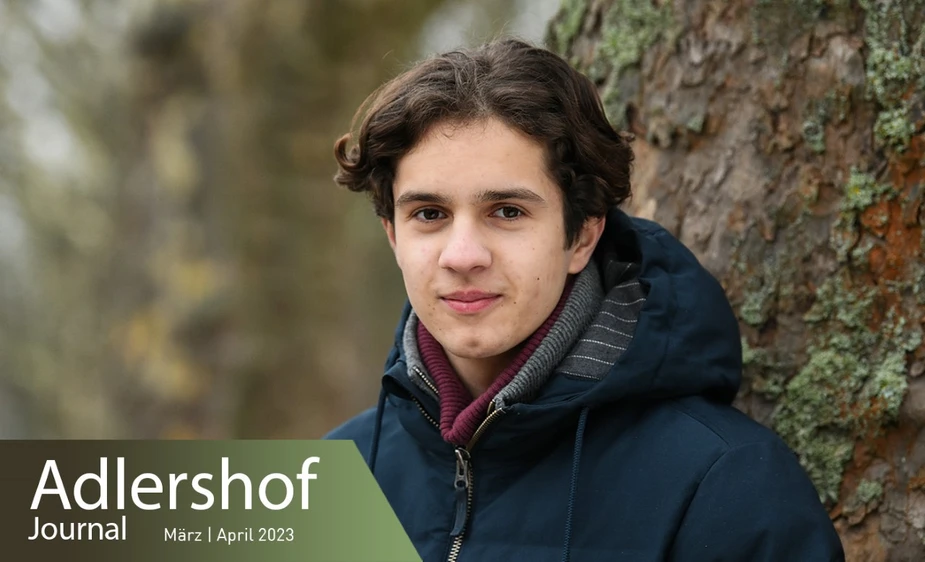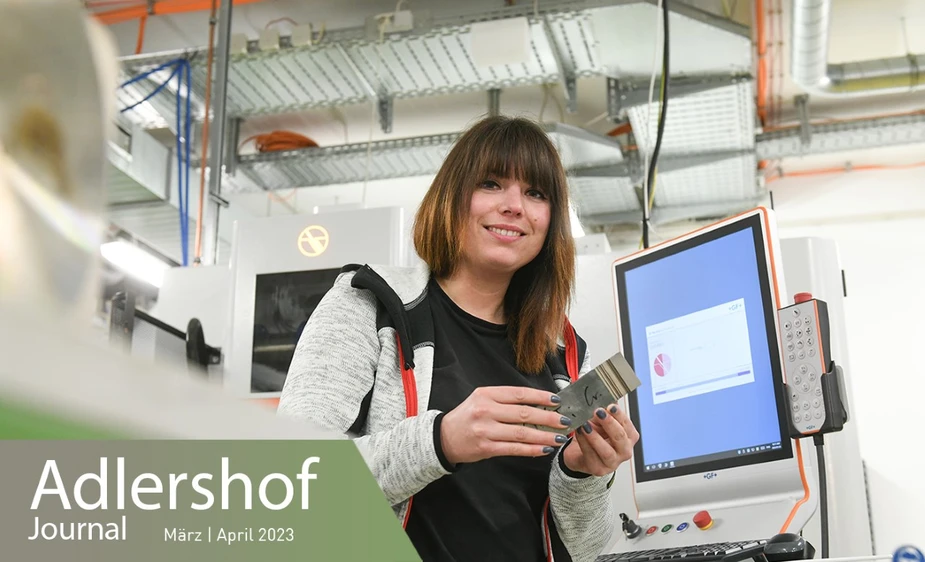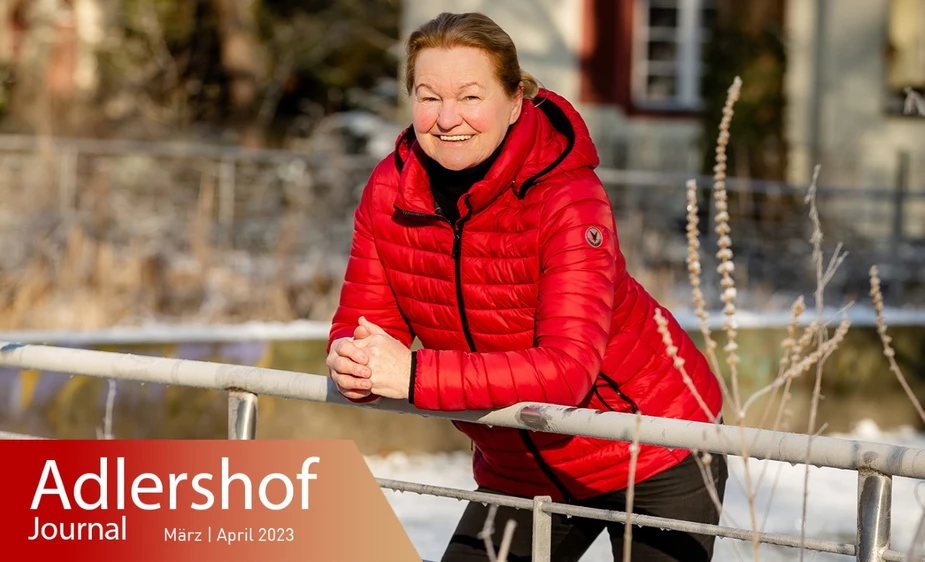Hidden heroes and their role models
A high school student, a young workshop manager, and a retired professor tell what it all comes down to
What drives young people? Why are role models so important for fostering young talent? And is it possible that young talent then becomes a role model for others? A high school student, a young workshop manager, and a retired professor tell us what they think is most important.
Role models? Not an easy question. Julian Pilzer, on the other hand, has a very clear idea of what he thinks a role model is or what he aspires to: “It’s good when people live out their passion and have a burning interest in something – that inspires me,” says the 18-year-old. Almost apologetically, he adds: “For me, unfortunately, it changes all the time.” That is not necessarily a bad thing. After all, you’d be hard-pressed to find something the high school student from Friedrichshagen is not interested in. This is already quite clear when looking at the gap between his two intensive courses at school: music and physics. His hobbies, too, display a wide breadth: The range includes football, weightlifting, volleyball, and tinkering around with technology.
Because of this, he can enthuse about ants as much as the Energiewende, the transition to clean energy. Both of these topics were part of his project for Jugend forscht, Germany’s best-known young science competition. Together with his friend, Elias Freyhof, Pilzer developed an online identification key enabling laypersons to identify 40 species of ants that are native to Berlin. “Like all insects, ants play a major role in our ecosystems but are poorly studied,” explains Pilzer. “Our project aims at contributing to a better understanding of long-term changes in Berlin’s biodiversity, the majority of which are due to climate change.”
With that, we have marked another topic that is on the young researcher’s mind: the environment and sustainability. Why not contribute another Jugend forscht project on the Energiewende while he’s at it? Pilzer and two classmates are currently developing an online calculator to help local governments determine how to best cover their energy needs with renewables and to store them over time. In addition to energy consumption, this is achieved by looking at geography, climatic conditions, and the efficiency of different storage technologies. Pretty exciting stuff. With his unique ant identification key, Pilzer made first place at the Jugend forscht regional competition Berlin South, which took place at Technology Park Adlershof last year, won the state in biology, and received the special award for biodiversity and protection of the environment by the Nature and Biodiversity Conservation Union (NABU).
After his Abitur, the German A-levels, he plans on taking a path that allows him to bring together the environment and sustainable business to “do good”, as he puts it. After all, that’s what role models do.
Michelle Schulz takes a similar view: “I consider many qualities exemplary that are relevant for more than just my job,” she says. “Punctuality and reliability are qualities that not only feature in good mechanics but also friends whom you can rely upon.” Schulz is a trained industrial mechanic and has been a member of the precision mechanics workshop team of FBH for five years. FBH stands for Ferdinand-Braun-Institut gGmbH, Leibniz-Institut für Höchstfrequenztechnik (FBH), the development workshop creates customised workpieces ranging from measurement holders to prototypes.
Precision runs in the family of the precision engineer with a Master craftsman's diploma in her pocket: “Early on, my father, who too is a trained precision engineer, introduced me to this world. For this reason, it was quickly clear to me that I wanted to learn the trade myself.” For her profession, her father was a good role model: “Even then, he impressed me with his knowledge about materials and his craftsmanship as well as his patience and his talent for explaining it all to me.” The young women likes seeing how an idea is turned into something tangible. “This highly precise and functional work always fascinated me very much.”
After working with machines all day, Schulz seeks balance in nature, preferably on the back of her horse. Her advice for young people: “Whatever you have planned for your life or what you want to do: Just do it! And do it with passion.” No matter how rocky the road might seem, it can be very fulfilling to leave it behind and commit yourself to not just an occupation but a calling.
Irene Nehls found her calling in good time. As early as her school days, the passionate teacher enthused about chemistry. Later, Nehls completed a PhD in the subject, established the department for organic reference materials at the Federal Institute for Materials Research and Testing (BAM), where she conducted many important analyses, and, last year, received the Clemens Winkler Medal from the Gesellschaft Deutscher Chemiker, a learned society, honouring her life’s work for the development of analytical chemistry.
Now retired, the 70-year-old is not prepared to give up her work life just yet and volunteers as a nature educator of NABU in schools. Teaching and engaging in an exchange with young science talent is what has always driven her: “When I was working on my dissertation, I was also working as an assistant at university and was tasked with providing the more in-depth knowledge from the ‘Analytical Chemistry’ lecture in seminars and practicals,” says Nehls. “That was when I jumped into the deep end in terms of higher education teaching.” A challenge that awoke a passion for teaching in her, for passing on knowledge.
All the better that Nehls is fostering interested students, even animating them to pursue a PhD of their own: “For me, it was always a special pleasure when these young scientists signed their first contracts after completing a PhD.” So why should she give up having these beautiful and meaningful experiences in retirement? The retired professor has now devoted herself to environmental education for schoolchildren. “Everyone is talking about sustainability. I feel like there is nothing better for sustainability than bringing children closer to nature and the environment,” says Nehls. And though she would probably never say it out loud: The scientist is probably a role model for those young people. She is not particularly fond of giving advice. Just this once: “When you stay open-minded and curious, nothing can go wrong.”
Chris Löwer for Adlershof Journal


